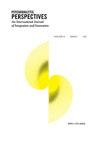Stories of Loss and Compassion: A Review of Emotional Inheritance: A Therapist, Her Patients, and the Legacy of Trauma by Galit Atlas
Q4 Psychology
引用次数: 0
Abstract
Psychoanalytic writing today is aimed almost entirely at psychoanalysts, not the general public. There are exceptions, though Freud and Beyond (Mitchell and Black, 1995), any number of books by Adam Phillips on topics ranging from kindness (2009) to monogamy (1996), to the nature of change (2021), and, recently, The Relational Revolution in Psychoanalysis and Psychotherapy (Kuchuck, 2021). All of these succeed in being engaging and explanatory about psychoanalysis for “lay” readers while retaining intellectual weight and complexity suitable for professional readers. But the question still shows up often enough on the professional listservs: “What is a good book to recommend to someone who wants to understand how psychotherapy works?” With Emotional Inheritance, Dr. Galit Atlas has written a collection of clinical stories that bring to life the complexity, depth, and beauty of psychoanalytic work. She writes (and speaks in the audiobook version) in a voice that conveys what is so often uncannily poignant about therapeutic work, specifically in work with intergenerational trauma. In each of the clinical stories she tells, Atlas conveys how, as therapists and patients, we move from being strangers to becoming (asymmetrical, boundaried) intimates (Aron, 1996), how we start in obscurity and emerge into illumination, how we and our patients learn to bear the unbearable, know the unknowable, and ultimately go on living more wholly, more fully. She achieves this in a book specifically intended for a general readership, yet this is a book that can and should be a guide and an inspiration for mental health professionals at every level of experience. Atlas’s ability to lift clinical stories out of the clinic and into the realm of literary art can be observed in her professional writing (Atlas, 2015; Atlas and失落与同情的故事:情感传承回顾:一位治疗师、她的病人和创伤的遗产
今天的精神分析写作几乎完全针对精神分析学家,而不是普通大众。当然也有例外,比如《弗洛伊德与超越》(Mitchell and Black, 1995)、亚当·菲利普斯(Adam Phillips)写的很多书,主题从善良(2009)到一夫一妻制(1996),再到变化的本质(2021),以及最近的《精神分析和心理治疗中的关系革命》(Kuchuck, 2021)。所有这些都成功地吸引和解释了“外行”读者的精神分析,同时保留了适合专业读者的智力重量和复杂性。但这个问题仍然经常出现在专业网站上:“对于想要了解心理治疗如何运作的人来说,有什么好书值得推荐呢?”在《情感传承》一书中,加利特·阿特拉斯博士写了一本临床故事集,将精神分析工作的复杂性、深度和美丽带入生活。她的写作(以及有声读物版的演讲)用一种声音传达了治疗工作中常常令人难以置信的尖锐,尤其是在治疗代际创伤的工作中。在她讲述的每一个临床故事中,阿特拉斯传达了作为治疗师和病人,我们如何从陌生人变成(不对称的,有界限的)亲密者(阿隆,1996),我们如何从默默无闻开始,如何进入光明,我们和我们的病人如何学会忍受无法忍受的,了解不可知的,最终继续活得更完整,更充实。她在这本专门针对普通读者的书中做到了这一点,但这本书可以也应该成为每一级经验的心理健康专业人员的指南和灵感。阿特拉斯将临床故事从诊所提升到文学艺术领域的能力可以在她的专业写作中观察到(阿特拉斯,2015;阿特拉斯和
本文章由计算机程序翻译,如有差异,请以英文原文为准。
求助全文
约1分钟内获得全文
求助全文

 求助内容:
求助内容: 应助结果提醒方式:
应助结果提醒方式:


